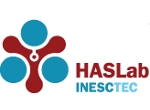Formalizing Single-Assignment Program Verification: An Adaptation-Complete Approach
- Citation:
- Lourenço CB, Frade MJ, Pinto JS. 2016. Formalizing Single-Assignment Program Verification: An Adaptation-Complete Approach. Programming Languages and Systems - 25th European Symposium on Programming, {ESOP} 2016, Held as Part of the European Joint Conferences on Theory and Practice of Software, {ETAPS} 2016, Eindhoven, The Netherlands, April 2-8, 2016, Proceedings. 9632:41–67.
Tertiary Title:
Lecture Notes in Computer ScienceAbstract:
Deductive verification tools typically rely on the conversion of code to a single-assignment (SA) form. In this paper we formalize pro- gram verification based on the translation of While programs annotated with loop invariants into a dynamic single-assignment language with a dedicated iterating construct, and the subsequent generation of compact, indeed linear-size, verification conditions. Soundness and completeness proofs are given for the entire workflow, including the translation of an- notated programs to SA form. The formalization is based on a program logic that we show to be adaptation-complete. Although this important property has not, as far as we know, been established for any existing program verification tool, we believe that adaptation-completeness is one of the major motivations for the use of SA form as an intermediate lan- guage. Our results here show that indeed this allows for the tools to achieve the maximum degree of adaptation when handling subprograms.
Notes:
n/a

